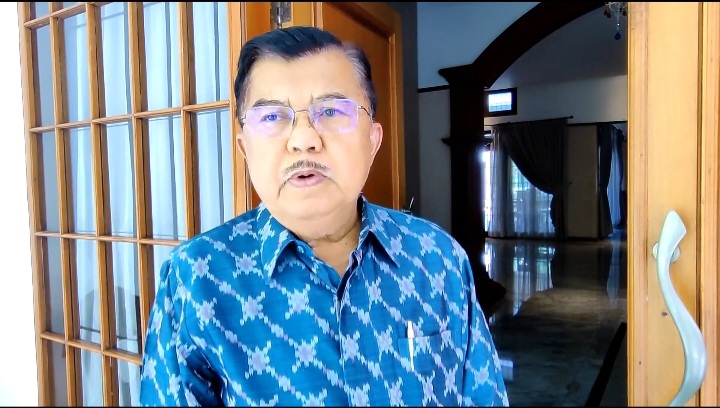Former Vice President Jusuf Kalla Calls on Aceh Residents to Treat Rohingya Refugees with Compassion
MAKASSAR, RAKYAT NEWS – Former Indonesian vice president Jusuf Kalla (JK) who is currently the Chairman of the Indonesian Red Cross (PMI), has called on the people of Aceh to treat the Rohingya refugees stranded in Indonesia with dignity and compassion.
His statement came after over 150 Rohingya migrants were rejected by residents in Jeulingke, Syiah Kuala District, Banda Aceh.
“As Muslims, we are called upon to help those in need, as that is a command from our faith,” JK said at his residence in Makassar on Saturday, November 9, 2024.
“We must show respect and humanity in dealing with them. Even Europe, when faced with African refugees, accepts them, no matter the number,” he added.
For PMI, JK emphasized that the situation of the stranded Rohingya refugees should be viewed as a humanitarian crisis. He firmly believes that these refugees would not have fled their country unless there were severe problems there.
“They would not have fled their country if there wasn’t a problem,” he said, underscoring the gravity of the situation.
JK urged the Indonesian government to accommodate these refugees, noting that they are being managed by the United Nations High Commissioner for Refugees (UNHCR). “The government should work with UNHCR to find a solution and send them to a country that is willing to accept them,” JK suggested.
He also expressed concern over the treatment of the refugees by local residents, particularly the inhumane act of placing them on trucks for two days. JK condemned the practice, calling it unacceptable.
“It is certainly inhumane to leave them on trucks for two days. How can they eat, clean themselves, and attend to basic needs?” he remarked.
The 152 Rohingya refugees, who had originally arrived from South Aceh, were rejected by local residents in Jeulingke, Syiah Kuala, Banda Aceh, and were subsequently returned to their point of origin.
The refugees had arrived at Simpang Mesra, Lamnyong, around 7:15 PM on Thursday, November 7, 2024, in five trucks that had parked along the road leading to Darussalam.
This incident has sparked further discussions on how Indonesia, as a humanitarian nation, should respond to the growing number of refugees seeking shelter from persecution. (Uki Ruknuddin)


Tinggalkan Balasan Batalkan balasan